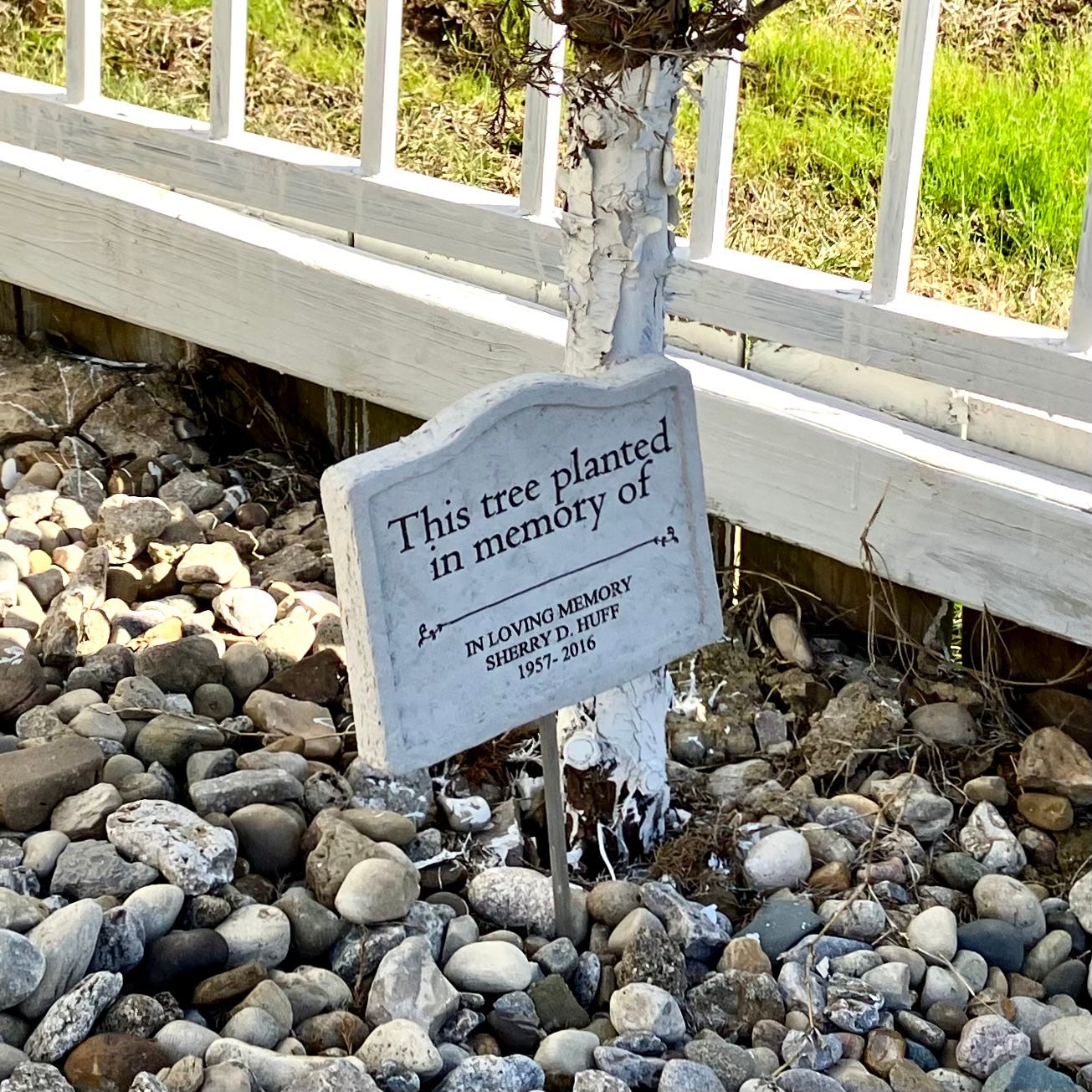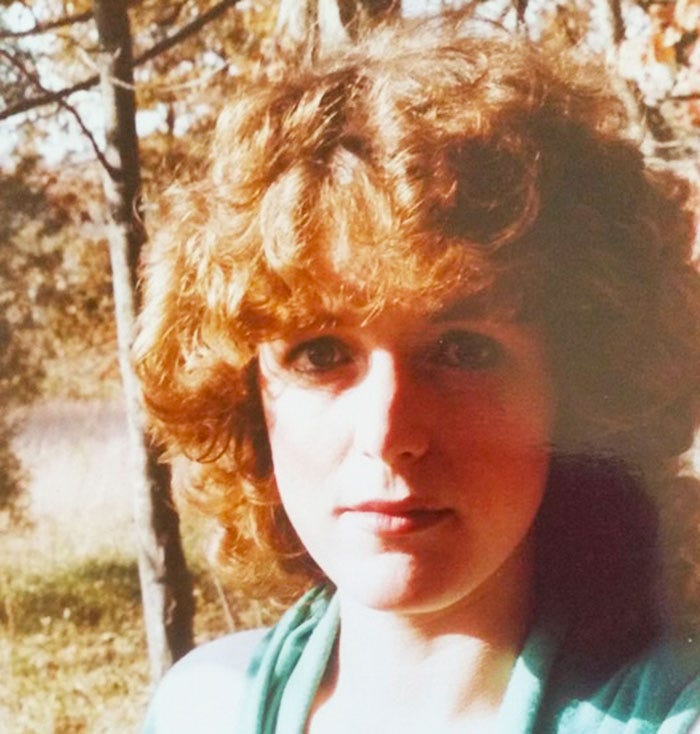Like Father, Like Daughter, Like Son...
A small but miraculous moment
In one corner of my father’s backyard is a small rock garden shaded by a young cedar tree. My sister Sherry’s ashes are buried beneath the tree, per her wishes. A plaque engraved with her name, birth, and death years on it leans against the base.
The day after my mom died earlier this year, I was pacing the yard in the cold and was drawn to the small green iron lawn chair my father had placed by Sherry’s resting place a year or two ago. I sat and stared at my sister’s name. Then I did something I never do. I said, “Sherry, I wish you were here. You’d know what to do.”
I have never talked to myself or the dead aloud, but I meant those words. She was ten years older than me and the very model of a capable oldest sibling, even though she sometimes hated that sense of responsibility. Confronted by our mom’s death, I felt overwhelmed by the enormity of the loss and, worse, facing it without the sibling I most often looked to for guidance when I couldn’t figure out what else to do. The sister who understood me better than anyone else in the family.
I never told anyone what I’d said aloud that day. It was such a small moment and so personal; why would I?
Yesterday my two youngest kids, Maggie and Dylan, were in my Dad’s yard, looking at his colorfully painted fence, crepe myrtle tree, and tomato patch. They went to the cedar where Sherry’s plaque is and stood looking at it. Then, according to my daughter Margaret, my son Dylan said aloud, “Sherry, I wish you were here. You’d know what to do.”
Again, I am sure I never told anyone what I’d said alone on that chilly February day. But my son, who is on the autism spectrum and rarely speaks without a good reason, had somehow said the exact same thing, completely unbidden.
I don’t know what to make of that. I really don’t. But I welcome the sense of wonder it brings.



